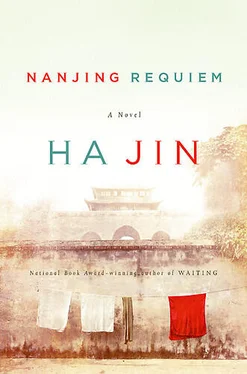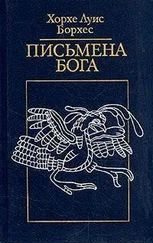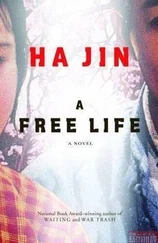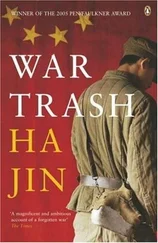Fukuda received us cordially, but explained that he still couldn’t locate any of the men and boys on the list Minnie had presented to him in late January. A young Japanese woman wearing a flowered kimono and wooden clogs came in, carrying a clay teapot and three cups on a tray. After tea was served, Minnie said to Fukuda, “We’ve just learned that there are many civilians in the Model Prison.”
“Are you sure?” He looked incredulous, his eyebrows locked together.
“Positive.” Minnie went on to speak about Sufen’s son. “He’s her only child and was taken on December fifth. He told her there were many young boys in there.”
Fukuda heaved a feeble sigh, tapping his cigarette over an ashtray in the shape of a flatfish. He said in halting English, “I thought that place was holding only soldiers. Well, we shall investigate. Try to give more physical descriptions of this boy. If he is there, I shall try to help him come out of prison.”
“I’ll let his mother know. Thank you.”
“Miss Vautrin,” Fukuda said with some feeling, his bony face flushing, “I mean to help. I hope you can believe I have been doing my best.”
“Of course I can.”
I knew Minnie didn’t completely trust him. He might be sympathetic to the poor women, but he couldn’t act himself, given his role as an attaché. Besides, there must be a military office in charge of such a matter, but he had just said he was unclear about that when Minnie asked him. Maybe he simply didn’t want to bother or offend the army with our petition. This could also mean he wasn’t deeply involved.
We thanked him again and left the embassy. I was impressed by Fukuda’s courtesy, though Minnie and I were now less convinced that he would bring our petition to his superiors. He was always very officious, as if wearing an impenetrable mask, and seemed unable to feel anything. Never having seen his face fully at ease, I couldn’t even place his age — maybe he was in his late twenties, but he could also be pushing forty.
We headed south along Tianjin Road. Although the area was within the Safety Zone, many houses had been reduced to rubble, and some stood but did not have roofs. Even a good number of electric and telephone poles were gone. Several buildings were no more than skeletal hulks. At the corner of Hankou Road, we saw a rickshaw carrying two soldiers. One of them stopped the vehicle and asked the puller to do something, shouting, “Hao guniang, duo duo you!” At first I didn’t catch it, then I realized he meant: “Good girls, many many there are!” The Chinese man shook his sweaty face and waved, saying he didn’t know where to find girls. Hearing that, one of the soldiers jumped off and began punching him in the chest. “Ow! Ow!” the man wailed. “I just don’t know how to find them! Even if you beat me to death, I won’t be able to say where there’re girls. They’re all gone.”
Minnie strode up to them and I followed her. The instant the other Japanese saw us, he gave a cry, which made his comrade stop short and get back on the rickshaw. Then they both motioned for the puller to proceed. In a flash the vehicle rounded a street corner and vanished.
We continued west. Approaching our campus, from a distance we caught sight of John Magee — his jeep stood beside the front entrance. We hurried up to him. At the sound of our footsteps, he turned around, his fedora cocked. “Hi, Minnie and Anling,” he said. “I brought over some powdered milk and a barrel of cod-liver oil.”
“Thanks,” we both said.
Luhai was busy unloading the car. He said, “This is what we need for the kids.”
Minnie told Magee, “The porridge plant has been a small disaster for us. Most of the children here were undernourished, so the dried milk and the cod-liver oil will do them good.”
“We just got a truckload,” Magee said. “I’ll give you some more if there’re still leftovers after we distribute them.”
“Please do. Thanks in advance.”
The reverend drove away, leaving behind a haze of dust and an odor of exhaust. He was driving a new jeep now, bought from a Japanese officer for merely 160 yuan after some soldiers had stolen his old Dodge. We still had the clunker Magee had given us, but it was already dead, not worth fixing anymore, according to Minnie.
Minnie turned to Luhai. “Is there any progress in your investigation?”
“No. I’ve watched the cooks pour rice into the cauldrons every time they cook, but still the porridge is as thin as it was.”
“Don’t we have some beans?”
“Yes, thirty sacks.”
“Add some beans to the rice. That will make the food richer.”
“Good idea. I’ll get them to start doing that tomorrow.”
We had just received the mung beans and navy beans from the Safety Zone Committee. Because of the dropsy caused by malnutrition among some refugees, Plumer Mills had repeatedly asked for the beans and obtained sixty tons from Shanghai. We were pleased with the beans, as well as with Magee’s new contribution. But Minnie wouldn’t let Luhai distribute the powdered milk and the cod-liver oil, perhaps afraid he might give them to his relatives and friends, so she let me handle them, which I was glad to do.
Within a few days most women had stopped complaining about the porridge, since the beans had thickened it to a degree. Still, Minnie couldn’t put the graft in the porridge plant out of her mind, and just the mention of it would make her bristle. If only we could stop the theft.
THE NEXT AFTERNOON Dr. Chu came to see us. That morning two women had spotted their husbands in the Model Prison as the men were being herded onto the trucks that took them to work. But the lanky doctor couldn’t offer any heartening news. He crossed his thin legs and said, “I personally delivered the petition to the Autonomous City Government, together with the stack of paperwork, but they said the information was too vague and they couldn’t do a thing.”
“What else do they need?” Minnie asked.
“They want more descriptions of every man.” He blew away the tea leaves in his cup.
“What kind of descriptions?” asked Big Liu.
“Physical features, like height and weight.”
“That’s ridiculous,” I said. “How on earth can the women know how much their husbands and sons weigh now?”
“Just give as many physical descriptions as you can.”
“That means we’ll have to start all over again,” Minnie said.
“Probably it will be worth it, considering more women have sighted their menfolk in the jail. I know those officials might want to dodge this case, but you shouldn’t give up so easily.”
After Dr. Chu had left, the three of us decided to redo the petition. This would take the four people in Big Liu’s team more than a week, but the effort would pay off even if we could save only one life.
Minnie let a dozen or so older women go to the Model Prison every morning to see if they could find more of their menfolk in the labor gang. She had an official letter written for them, saying that these women would make no trouble and wanted only to catch a glimpse of their husbands and sons. Following Minnie’s instructions, the three women who had spotted their menfolk also went to the Defense Commissioner’s Office to report their discovery and plead for help, but so far there was no official response.
THE CAMPUS, no longer guarded by the Japanese police, was now pretty with blooming flowers — lilacs, magnolias, crocuses, white spirea — and birds kept singing, as if determined to burst their throats with grief. There were so many flowers that once a young Japanese officer came to ask for a bouquet, and Minnie was pleased to get Old Liao to cut a mixed bunch for him. Every day some soldiers would turn up in twos or threes, but few were violent now. They were impressed by our classroom buildings, which combined the Chinese and the Western architectural styles, with high-columned front portals, flying eaves, and gargoyles on the edges and ridges of the roofs. I treated them with courtesy in the hope that one of them might help me find my son in Tokyo. We hadn’t heard from Haowen for ten months and couldn’t stop wondering if he was still alive, but I never went so far as to ask any of the soldiers to help look for him. I hadn’t met one I might trust.
Читать дальше











